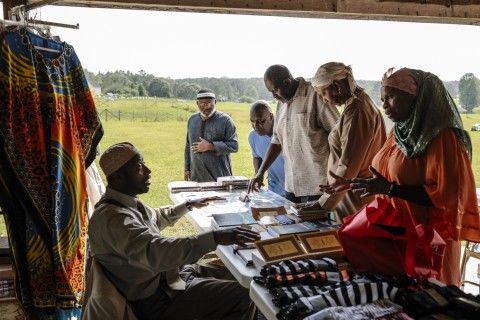
Three decades ago Abdul Hakim Shareef founded a community of like-minded African-American Muslims on the outskirts of Hattiesburg, Mississippi where the mission was to be able to live a more simple Islamic life in a community of their own – to be able to harvest and produce their own food, and educate their own children. According to the Washington Post, “members of Mr. Shareef’s community are followers of the late Warith Deen (W.D.) Mohammed, a son of former Nation of Islam leader Elijah Muhammad. Although he broke with the Nation, Mohammed, who died in 2008, maintained some of the Nation’s cultural practices and saw American Islam as intertwined with the experience and lessons of slavery and black oppression. About 180 mosques nationwide follow his teachings.”
Mr. Shareef and his wife, Ruth Shareef, and their friends founded this community in the mid 1980s, and called it New Medinah, after one of Islam’s two holiest cities. The a 64-acre area of homes, farms and a mosque was the ideal place where like-minded Muslims could “live, collaborate on business endeavors, and cultivate the land for vegetable plots, cattle, chickens and honey bees” (per Washington Post).
But by 2009, children were growing up and leaving for college. The school closed, and people were departing the community. Other similar W.D. Mohammed schools in larger cities also faced similar problems. The cause of this, the Washington Post notes, is due to “an influx of Muslim immigrants after 1965 outnumbering the native-born black Muslim population.”
Washington Post makes the argument: “ There was a time, about five decades ago, when ‘American Muslim’ tended to mean black Muslim. Native-born black Americans such as Shareef who had joined the Nation of Islam, a black nationalist group that gained prominence during the tumultuous days of the civil rights movement. But today’s image of the American Muslim largely obscures that history. The stories of Malcolm X and Muhammad Ali have faded in the American memory, replaced by portrayals of Muslims as immigrants, people with foreign accents and ideologies. As a result, Shareef’s community has realized that, as the relevance of this American sect fades into the background, New Medinah’s existence might die with its founders.”



